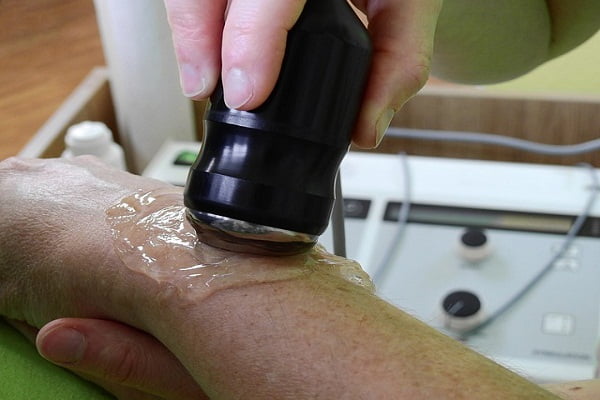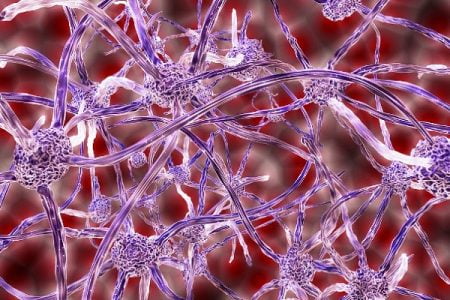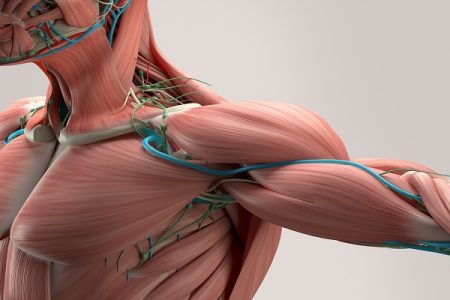
Pinched Nerve (Trapped Nerve or Compressed Nerve)
The administration of pressure or any kind of force on your nerves can develop a pinched nerve. The surrounding disc, bone or muscle may exert excessive pressure on your nerve and can damage it. A pinched nerve causes pain, numbness and tingling sensation in the affected region.
More: Pinched Nerve (Compressed Nerve): Causes, Symptoms, Diagnosis, Treatment, Prevention
How Do You Get a Pinched Nerve?
You can get a pinched nerve by development of any kind of pressure on your nerves. Pressure can be created in the following ways:
- Due to a herniated disc
- Spinal stenosis
- Due to degenerative disc disease
- Bone spurs
- Spinal arthritis
- Certain repetitive motions which are associated with sports, exercise, improper lifting or other heavy use of the back, such as physical or labor-intensive jobs.
- If you experience a sudden and unexpected trauma and/or accident which damages your nerve
- Pregnancy can lead to the development of a pinched nerve as excessive weight gain and water retention during pregnancy leads to excretion of pressure on body nerves.
- If you hold your body in a single position for a longer duration, it can lead to the development of a trapped nerve.
When should you visit a doctor for a pinched nerve?
A pinched nerve sends warning signals to your brain, which are important to identify. There are a few pinched nerve symptoms which require immediate medical attention. Some of them are as follows:
- You may experience a pinched nerve in your urinary bladder or bowel. This condition is also known as cauda equina syndrome.
- Your ability to grip or drop down objects is affected.
- You experience nerve damage which causes severe inactivity of your affected limb or specific area of the body.
- You may experience severe pain which is constant or keeps on returning.
- You may experience pain, tingling and numbness, which does not resolve or is getting worse.
Your doctor may examine the affected area by carrying out certain imaging tests such as magnetic resonance imaging (MRI) or a computerized axial tomography (CAT) scan. These tests help identify the exact nerves which are affected and decide a suitable treatment option.
If some home remedies increase or worsen your symptoms, you should immediately stop the treatment and consult your doctor or an orthopedic physical therapist.
Pinched Nerve Recovery Time
A pinched nerve may generally take a few days to about a few months to heal completely. The recovery time usually depends upon the extent of the damage that has occurred in your nerve and the type of treatment option chosen to recover from it.
Pinched nerve symptoms may last for a variable time in different patients. Most pinched nerves are temporary and can be easily treated at home. But if you experience persistent symptoms, then medical attention will be required, as it indicates presence of severe nerve damage.
How to Fix a Pinched Nerve?
The treatment of a pinched nerve depends upon the severity and its underlying cause of occurrence. You can treat your pinched nerve by various treatment methods, which are majorly classified as follows:
- Home remedies
- Medication
- Surgery
Home Remedies to Relieve a Pinched Nerve
You can try these simple home remedies to relieve your pinched nerve symptoms:
Extra Sleep and Rest
Sleep is one of the most essential techniques to heal a damaged nerve. Your body repairs all the damage that has occurred, when you sleep. So, it is necessary to take adequate amount of sleep to repair your body damage.
In large number of cases, providing rest to the affected area and extra sleep is a highly effective method to heal pinched nerve symptoms on their own.
A major factor for treating a trapped nerve is by not overusing or stressing the affected nerve. Overuse of the affected nerve can lead to severe nerve damage.
If you experience a pinched nerve, you can try these initial steps to relieve your symptoms and prevent further damage in your affected nerve. These steps include:
- Avoid those physical movements which irritates your affected nerve
- Sleep in a position which does not create pressure on your damaged nerve
Change of Posture
The most common cause which leads to the development of a pinched nerve is by following an incorrect posture while sitting or standing. If you continuously stand or sit in an incorrect posture for longer duration of time, then it creates stress on your body. This stress damages the spine and muscles of your body, leading to the development of a compressed nerve.
Try to find a position which provides comfort to your trapped nerve and spend most of your time in that position.
You can try using certain tools such as cushions, adjustable chairs and neck rest to maintain a proper posture and support your affected nerve. You can use a cervical collar for a short stretch of time during the day and a cervical pillow in the night. These tools help relieve pressure on your damaged nerve and heal the nerve injury.
Ergonomic Workstation
In many cases, the cause of a pinched nerve is an inefficient organization of your workstation. Certain changes on your workstation can create a huge difference on your compressed nerve.
Ergonomic workstations provide multiple body positional options for different body types and are effective for different types of pinched nerves. You can try the following ergonomic changes on your workstation to fix your impinged nerve:
- You can use an ergonomic mouse and keyboard to provide relief to the pinched nerve in your hand or wrist.
- By raising the monitor of your computer to your eye level, neck pain and symptoms of text neck can be effectively reduced.
- A standing workstation is also a helpful option, as it provides adequate movement and flexibility to your spine. This position prevents and treats a trapped nerve. It is an effective treatment option for a pinched nerve in your back, as it reduces your back pain.
You should take short breaks after every one hour while working to avoid occurrence of a pinched nerve. You can also try using roller balls for tight muscles and can take hourly stretching programs, if you’re frequently using a keyboard.
You can find the best position for your particular type of pinched nerve by experimenting with the settings which provide relief to your trapped nerve.
Stretching and Yoga
Gentle stretching and yoga are helpful in relieving tension and pressure in your body. If you experience a pinched nerve, it is advised not to stretch it too deeply, as it can worsen your symptoms.
If you experience any pain or discomfort while exercising, you should immediately stop exercising to avoid further damage to your affected nerve.
Massage
Massage is a highly effective treatment option as it reduces the physical pain and stress in your body. A full body massage leads to relaxation of your stressed muscles. By gently applying pressure on the affected area, excessive tension and pressure in your muscles can be relieved.
Deep tissue massages are not advisable if you suffer from a pinched nerve. It creates extra pressure on the affected region leading to worsening of pinched nerve symptoms.
Physical Therapy
Physical therapy involves a combination of massage, gentle stretches and simple exercises. It provides relief from pinched nerve pain and strengthens your nerves.
Splint
Splint is a device which provides support and immobilizes the affected limb or your spine. If it is possible, you can try wearing a splint for your affected nerve. It heals the nerve and prevents it from further damage.
Wearing a splint is a typical treatment option for a pinched nerve in your wrist or hand area. You can wear it while sleeping to avoid irritation at night and remove unnecessary pressure created on your affected nerve.
Elevate Your Legs
If you suffer from pinched nerve in your leg, you can try elevating your legs to remove any pressure on your spine. You can elevate your legs by putting some cushions under your knees, to create a 45 degree angle between your body and legs or you can make a 90 degree angle between your hips and knee.
Ice and Heat Packs
One of the effective ways to reduce inflammation and swelling in the body is by alternatively applying heat and cold packs on the affected region. This rotationally applying of heat and cold increases the blood flow in the damaged area and heals the pinched nerve faster.
You should hold an ice pack on the affected region for about 15 minutes each, three times in a day and a heat pad can be applied for about one hour, three times in a day.
Lifestyle Changes
You can include low-impact exercises such as swimming, walking, bicycling in your daily routine to reduce effect of pinched nerve symptoms and maintain a perfect body shape. By reducing excessive weight, redundant pressure on the nerves can effectively be reduced. The added mobility from regular exercises can even reduce inflammation in your body.
You should perform some stretches before and after exercising to make your body flexible and reduce pressure and inflammation near your affected nerves.
Acupuncture
Acupuncture involves application of specialized needles on specific target points within the affected muscle area, to relieve unwanted pressure on the nerves. It is a conservative method to treat compressed nerves.
Medications to Heal a Pinched Nerve
Doctors commonly recommend certain over-the-counter medication to provide relief from pinched nerve symptoms. Certain non-steroidal anti-inflammatory drugs (NSAIDs) such as ibuprofen and aspirin are effective in reducing nerve swelling and relive pinched nerve pain.
These medications are beneficial for minor pinched nerve cases. You should always consult your doctor before consuming any NSAIDs about their doses and necessary precautions.
In case of severe pain, your doctor may recommend consumption of oral corticosteroids. Anticonvulsant medications and epidural glucocorticoid injections are also prescribed if you experience persistent pain due to severe nerve damage.
Surgery: A Recovery Method for Pinched Nerve
Surgery is the last and intensive treatment option to treat a pinched nerve. Your doctor may recommend surgery in the following situations:
- If pinched nerve symptoms do not ease after six to eight weeks of conservative therapy
- If you experience severe difficulty in moving the affected region
- If your doctor identifies presence of spinal cord compression
- If all home remedies and medical options have been tested but did not provide any relief from pinched nerve pain and its symptoms
- If you develop additional weakness in the muscles of your affected region
The surgical procedure which is commonly carried out to relieve pressure on the spinal cord or radicular nerves is known as anterior cervical discectomy and fusion surgery.
Surgical treatment involves a great deal of risk and complications on your health, so you should consult your doctor for the best treatment options depending upon your condition.






